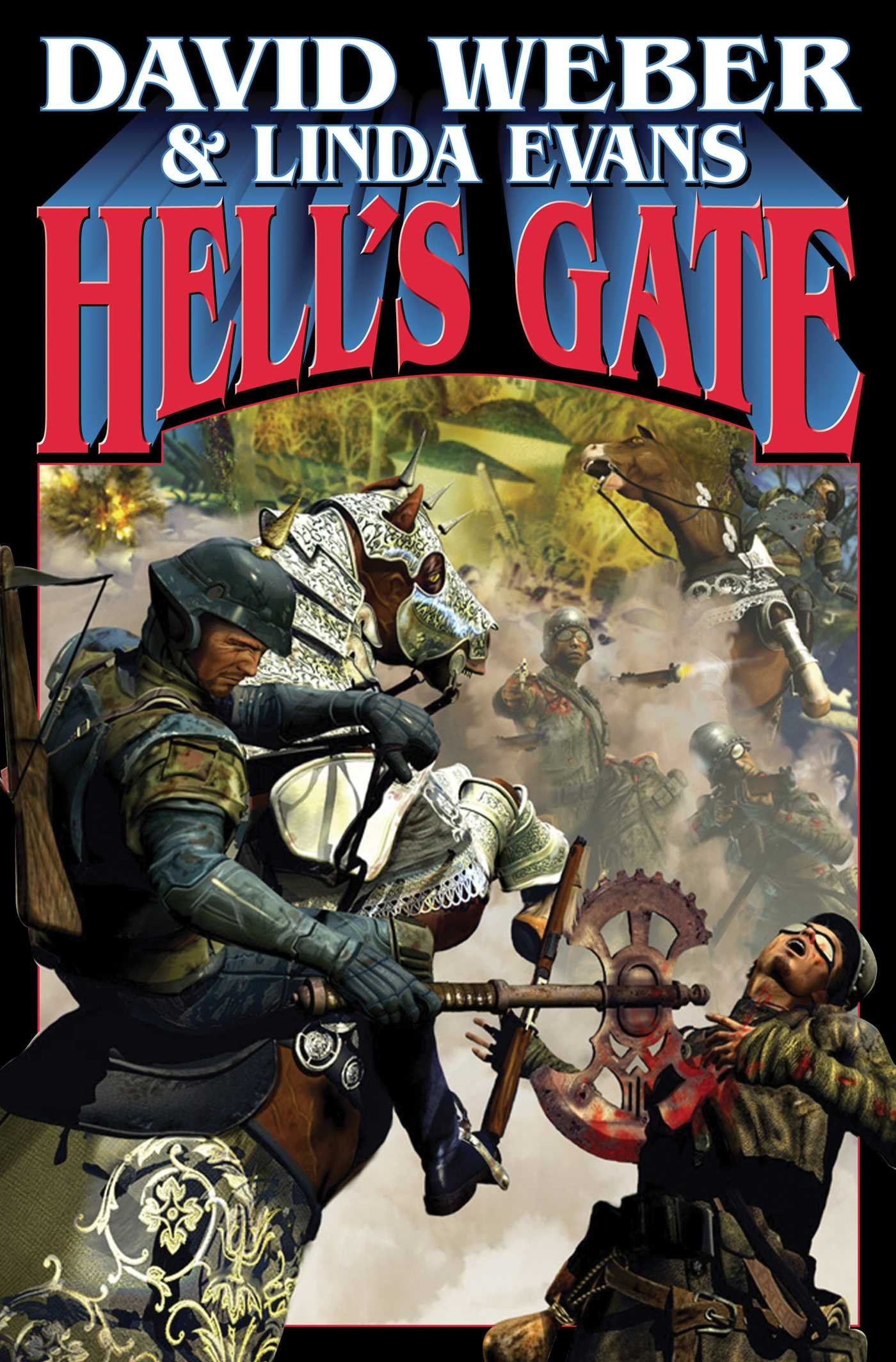Review: Hell's Gate by David Weber and Linda Evans
If multiple universes could exist, they might intersect. If magic was a reality in at least one of them, there might also be another world with people of supernatural ability. And given that magic-practicing humans in each would want to expand into the adjacent worlds of their respective multiverses, eventually they would meet. If they did, a war of magics might erupt.
That's a lot of "ifs," and the authors take an uncomfortably long time setting the scene. It doesn't help that neither human civilization uses names, military ranks, gods, or countries anything like our own common usage.
The reader is left to wallow in that welter of the unfamiliar, trying to set two different imaginary worlds into place mentally, before the story can truly commence. The only help is that one group of humans use "Talents" (ESP-like magical gifts), and supplement them with mechanisms like trains, artillery pieces, and dynamite. The other group uses "Gifts" (spell-magic talents they can use themselves, or code into personal crystals—"PCs"—for use by the non-Gifted), as well as modified organisms like dragons.
Oh, yes, and there are sentient apes and cetaceans in one of the multiverses. Sigh.
Previous writers who took on the multiverse concept left one side to the familiar. Think of H. Beam Piper with Lord Kalvan of Otherwhen, or Wen Spencer's Tinker in the Elfhome novels. Eric Flint's Ring of Fire novels started with a single town swapped into an unfamiliar alternate time and place in 1632.
In the Weber/Evans Hell's Gate series, we have to stretch to encompass good and bad guys for both sides of the conflict in a totally alien battlefield. Furthermore, the geography of each multiverse is the same as our own mundane Earth. It makes the battleground and home worlds in which these two cultures contend eerily familiar, but just different enough to delay and defeat the reader's attempt to assign places to a familiar globe.
If the novel shares a common failing with other Weber tales, it is the blank-and white nature of the various opponents: good guys are not only good, but stellar (even holy!); bad guys are not simply mistaken, but married to evil. Yet as with the Honor Harrington and Safehold oeuvres, there are enough of each on both sides of the conflict to keep it real.
More real than this is the "fog of war" that develops when these two civilizations meet. Although each had the firm intention to keep any eventual encounter peaceful, that intent does not survive the actual contact. "Guns" begin to blaze, people die on both sides, and it doesn't even need conspiracies of disinformation and propaganda from both civilizations to spin the conflict out of control:
Once hostility begins to grow, simple clarity of communication isn't enough to make it magically disappear. If two nations have a tradition of dislike, if they treat one another to public displays of discourtesy or petulance, if they get into the habit of denigrating one another in efforts to sway international diplomatic opinion to favor their side in some dispute, misunderstandings and flares of temper can occur quickly, particularly during times of increased stress.
This is the opening of a new series, so we should not expect the good guys to tidily win before the end. Even so, there is a appalling number of characters in whom we investe interest who die in horrific ways—some of them before the tale is really underway.
Yet despite its complexities, clumsy phrasing, and slight stereotyping, despite all the discomforts and delays, the story itself is compelling. We see how the misunderstandings contribute to disaster. We want the Prince to defeat the plans of his evil father-in-law, we want the Talented couple to survive as POWs, we really want the evil general and his sadistic minions to pay for their crimes.
And we're dying to know what the whales plan to do!
Liner Notes:
I found several things helpful in keeping the two civilizations straight in my mind:- The group with ESP Talents (the "mechanicals" as I call them) give their veterans the right to use the honorific "chan" in their names. The other civilization (or "magics") has a cultural group that includes the honorific "vos" in their surnames, but it isn't a reliable way to spot them in the narrative, especially since these folks may be hiding their Gifts.
- "Dragoons" belong to the mechanicals, "Dragons" to the magics.
- A couple of blank projection-maps helped me keep the geography of the two groups straight. Since the mineral wealth is common from one universe to another, silver and gold lodes and oilfields help site the places discussed. Obvious geographic landmarks like Gibraltar, the Mediterranean and Black Seas, gulfs and straits and island continents, all help to position the alien location-names on an understandable map.

No comments:
Post a Comment